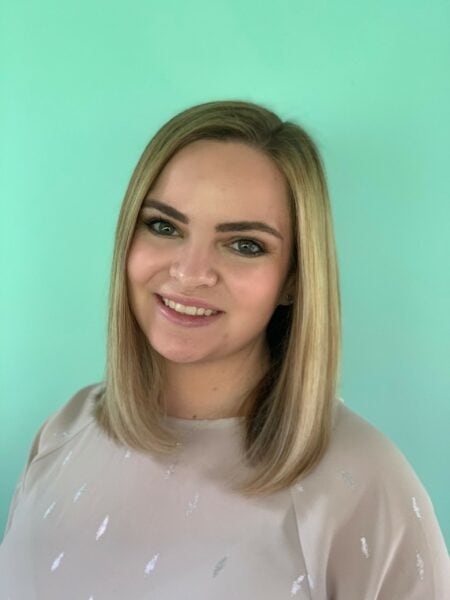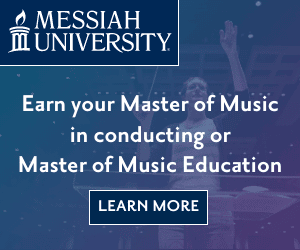/ News Posts / Learn from My Mistakes
10 Things I Wish I Knew as a New Teacher
By NAfME Member Erika Wahlers
Dear new, motivated, excited, and eager teacher,
Learn from my mistakes.
Like every other part of life, the good ol’ saying “hindsight is 20/20” is true. As a new teacher, I was the “type A, super motivated, always had it together” student. I worked hard as an undergrad student, and I did everything I could to prepare myself to be a teacher. Still, I made mistakes as a young teacher. I allowed work to consume me; I found myself feeling uninspired; I was pushing to work through illnesses; I was losing who I was; and I took anything negative personally. So, learn from my mistakes and take a look at the 10 things I wish I knew as a new teacher.
1. Set boundaries.
I was the new teacher who was taking work home, trying to plan lessons into the evening, texting about work, and forgetting to have a life. Sometimes you might need to stay late or do something extra, but do not make that a regular occurrence. As much as teaching is a passion, you also need to make sure that you are not just an educator. So, when contract time is up, go home and try to shut off the work. You do not need to stay at your school until dinner time has passed.
2. Seek professional development that serves you.
Sometimes the school’s professional development will not be what you personally need. Take time to find that master’s program, summer intensive, conference, or community that fuels your mind. Look for what will help you continue to become a better educator; do not settle for only what your school provides if it doesn’t fuel your fire.
3. Take the sick day.
This is one I am still learning. It is okay to be sick, stay home, and rest. You do not need to have COVID, the flu, or anything serious. If you do not feel well, take the sick day, rest, and come back when you are better. Your students will be there and happy to have you when you aren’t coughing.
4. Take care of yourself.
Remember that, when it comes down to it, you cannot pour from an empty cup. Take care of your body. As musicians, we need our bodies; find a non-negotiable self-care act that works for you. I recommend massages, pedicures, reiki, sound baths, mediation classes, or exercise.
5. Find hobbies.
If you are anything like me, being a “music kid” was your hobby growing up, but now you are making the transition where a hobby is also your career. You are more than a music educator, so find what else you like to do. Maybe learn to hike, read, paint, perfect video game bowling—whatever it is, find something.

Photo by Clay Banks on Unsplash
6. Consider therapy.
Being an educator is hard. We are professionals, and there are professionals who can help us. My personal journey with therapy has ebbed and flowed with managing my personal and work lives, and that is awesome. I am a better person and educator because of it.
7. Make friends.
There will come a time when something happens while you are at work and you will need someone to lean on. I am beyond lucky that I would consider my colleagues family. Through any life obstacles, I know they will be there to help me, and I will be there to help them.
8. Get involved with your school’s community and union.
Your colleagues are your people, and so is your union. Pick something to take on that your school community does that isn’t teaching. Maybe you help organize a holiday party, join your union’s outreach group, commit to playing in the teacher vs. student basketball game, or sign up to run an annual recognition dinner (that is what I chose), and get to know people who aren’t other music teachers or specialists.
9. Eat your lunch with your laptop closed.
Remember to slow down and eat. The emails will be there in 20 minutes, so enjoy your lunch and take the time for yourself. It seems simple until you find yourself forgetting each lunch as you try to get just one more thing done before your next class arrives. While you’re at it, drink lots of water.
10. Trust yourself.
This has been the most difficult part of my journey. While I am always seeking to learn, I also find myself thinking I do not know enough. Imposter syndrome can be very real. It is possible to still learn while also knowing enough. You graduated, you’re certified, and you put in the initial work. Trust your education. Trust yourself.
And as a bonus, if no one has told you yet, save the good emails from parents, the drawings and cards from students, and the positive letters from administrators. There will come a time when you need a reminder of why you are doing what you are doing. You’ve got this; now get out there and try not to make the same mistakes I did.
About the author:
 NAfME member Erika Wahlers is a band and music teacher at George Fischer Middle School in Carmel, New York. Erika earned her Masters of the Arts from Teachers College, Columbia University and her Bachelor of Science from Western Connecticut State University.
NAfME member Erika Wahlers is a band and music teacher at George Fischer Middle School in Carmel, New York. Erika earned her Masters of the Arts from Teachers College, Columbia University and her Bachelor of Science from Western Connecticut State University.
Did this blog spur new ideas for your music program? Share them on Amplify! Interested in reprinting this article? Please review the reprint guidelines.
The National Association for Music Education (NAfME) provides a number of forums for the sharing of information and opinion, including blogs and postings on our website, articles and columns in our magazines and journals, and postings to our Amplify member portal. Unless specifically noted, the views expressed in these media do not necessarily represent the policy or views of the Association, its officers, or its employees.
Published Date
September 14, 2023
Category
- Lifelong Learning
- Teacher Self Care
Copyright
September 14, 2023. © National Association for Music Education (NAfME.org)




